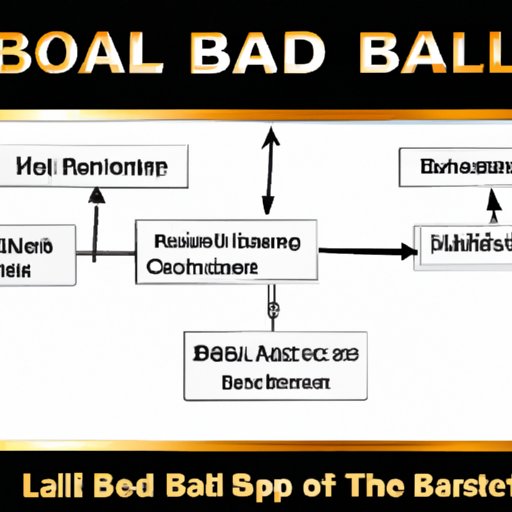Introduction
The bail bond system is an important part of the criminal justice system in the United States. A bail bond is a financial agreement between a defendant, a bail bond agent, and the court. The purpose of a bail bond is to secure the release of an arrested individual from jail while they await their trial date.
In this article, we will explore how does a bail bond work. We will look at the basics of how a bail bond works, the process for obtaining a bail bond, the role of professional bail bond agents, the benefits of using a bail bond, the different types of bail bonds available, and the associated costs and regulations.
Explaining the Basics of How Bail Bonds Work
When someone is arrested, they may be eligible for bail, which allows them to be released from jail pending their trial date. The amount of bail is set by a judge, who considers factors such as the severity of the crime and the defendant’s criminal history.
A bail bond acts as a guarantee that the defendant will appear in court on their assigned date. If the defendant fails to appear, the bail bond company is responsible for paying the full amount of bail to the court. In return, the bail bond company charges a fee, usually 10% of the total bail amount.

Outlining the Process for Obtaining a Bail Bond
When someone is arrested, they or a family member can contact a bail bond agent. The bail bond agent will request specific documents such as the defendant’s name, booking information, and the amount of bail set by the judge. The agent may also require collateral such as jewelry or real estate.
Once all the required documents are submitted and the fee is paid, the bail bond agent will post the bond with the court. This guarantees that the defendant will appear in court for their trial date. The defendant is then released from jail.

Examining the Role of Professional Bail Bond Agents
Bail bond agents have a number of responsibilities when it comes to posting bail. They must ensure that all documents are properly filled out and submitted to the court. They must also monitor the defendant’s whereabouts and report any changes to the court. In addition, they are responsible for collecting any fees owed to them by the defendant.
Using a professional bail bond agent can be beneficial to both the defendant and the court. According to a study conducted by the American Bail Coalition, “Bail bond agents provide an invaluable service to the justice system by providing a reliable source of pretrial supervision.”
Exploring the Benefits of Using a Bail Bond
A bail bond can help the defendant in several ways. For one, it allows them to be released from jail while they await their trial date. This gives them time to prepare for their legal proceedings and consult with an attorney.
In addition, a bail bond can help the court by ensuring that the defendant appears in court for their trial date. This reduces the burden on law enforcement and helps to keep the court system running smoothly.

Discussing the Different Types of Bail Bonds Available
There are three main types of bail bonds: cash bonds, surety bonds, and property bonds. Cash bonds involve the defendant or a family member paying the full amount of bail directly to the court. Surety bonds involve a bail bond agent guaranteeing the court that the defendant will appear in court for their trial date. Property bonds involve the defendant or a family member pledging property as collateral for the bail amount.
Investigating the Costs and Regulations Associated with Bail Bonds
The cost of a bail bond depends on several factors, including the amount of bail set by the judge and the state or federal laws governing bail bonds. Generally, the cost is 10% of the total bail amount. Most states and the federal government have regulations in place to ensure that bail bond companies are operating ethically and lawfully.
Conclusion
A bail bond is a financial agreement between a defendant, a bail bond agent, and the court. It is used to secure the release of an arrested individual from jail while they await their trial date. The process for obtaining a bail bond involves contacting a bail bond agent, submitting required documents and fees, and posting the bond with the court. Professional bail bond agents have several responsibilities and can provide an invaluable service to the justice system. A bail bond can help the defendant by allowing them to be released from jail, and can help the court by ensuring the defendant appears in court for their trial date. There are three main types of bail bonds: cash bonds, surety bonds, and property bonds. The cost of a bail bond is typically 10% of the total bail amount, and there are state and federal regulations in place to protect consumers.
(Note: Is this article not meeting your expectations? Do you have knowledge or insights to share? Unlock new opportunities and expand your reach by joining our authors team. Click Registration to join us and share your expertise with our readers.)
